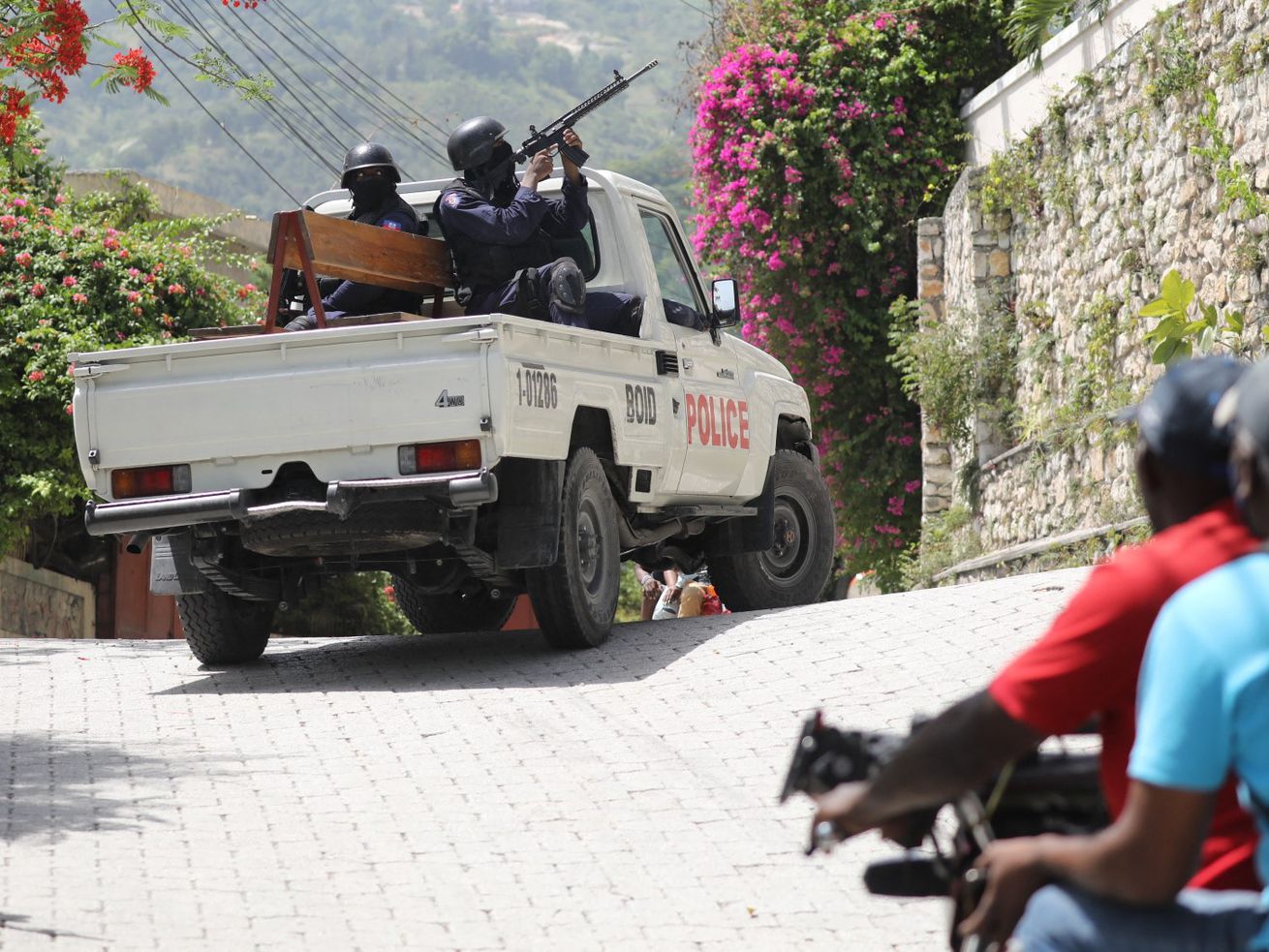America and Haiti’s complex relationship, explained
The assassination of Haiti’s President Jovenel Moise has sent the country into shock and turmoil, sparking discussions in the international community on how to help bring stability. But Haiti’s long history of foreign involvement can’t be ignored, nor can the fact that often, aid was provided whether or not Haiti itself benefitted.
On Wednesday, July 7, President Moise was shot 16 times when Hatian officials allege a group of “professional killers’’ stormed his home in a suburb located near Port-au-Prince, Haiti’s capital city. Prime Minister Claude Joseph assumed leadership and promptly declared a two-week state of siege in the country in an attempt to control backlash. However Joseph’s authority is being questioned by some as President Moise had declared Ariel Henry the new Prime Minister only two days before his assassination. Henry was meant to be sworn in this past week. Complicating the issue is the fact that Haiti currently has two conflicting constitutions that give different instructions on what to do when the president is no longer in power.
Moise’s hunger for power defined his presidency
Moise himself had a tumultuous presidency beginning in 2017, highlighted by his authoritarian tactics and inability to gain the Haitain people’s trust. Soon after he was elected, Moise revived the nation’s army which had been disbanded two decades before. This was a controversial decision in a country still dealing with the aftermath of its catastrophic 2010 earthquake, stoking fears that the army would drain already limited resources. Further skepticism came from the army’s history of human rights abuses and the multiple coups it carried out. The decision to bring the army back set the tone for Moise’s presidency as he continuously prioritized his interests and power over those of the people. In the absence of a functioning legislature, Haitian law allows the President to rule by decree, and in January 2020, Moise refused to hold Parliamentary elections and dismissed all of the country’s elected mayors, consolidating his power.
Further exacerbating problems, in February Moise refused to leave office despite legal experts and members of an opposition coalition claiming that his term ended on February 7th. Moise claimed that his presidency was meant to last until 2022, due to a delay in the 2017 election, and his refusal to step down led to mass anger and frustration culminating in public protests and chants of “no to dictatorship”.
While the identity of the killers has not been confirmed, speculation seems to be determined by party alignment. Moise supporters have stated that he was shot by a predominantly Colombian group of hitmen while some opposition politicians claim that he was killed by his own guards. Others have said that the Colombians were hired as personal guards to protect Moise from external threats. Fifteen Colombian suspects are currently in custody along with two Hatian-American suspects, and others still believed to be at large.
Haiti’s current call for intervention is reminiscent of its past
Moise’s assassination leaves Haiti with an unstable government and an increasingly frustrated population. In addition to the current state of siege implemented by Prime Minister Joseph, Haiti’s interim government has formally requested the US to send security assistance to protect infrastructure including Haiti’s seaport, airport, and gasoline reserves as a precautionary measure. During a briefing Friday, Press Secretary Jen Psaki offered measured support from the White House, saying, “we will be sending senior FBI and DHS officials to Port-au-Prince as soon as possible to assess the situation and how we may be able to assist.”
It remains to be seen how the Biden administration will react but if US troops are sent to Haiti it could begin to feel like political deja vu. Haiti has a long history of American military intervention.
Foreign intervention in Haiti has often worsened the situation
The United States’ involvement began as early as the 1790s, when it provided support to French colonists in an effort to subdue revolting groups of enslaved Haitians. As the revolution grew, so did US hostility toward Haiti, fearing that the revolutionary discourse would spread to the enslaved population in the US. And although Haiti gained independence in 1804, the United States did not recognize it as an independent nation until 1862.
This attitude towards Haiti drastically changed in 1915, after President Jean Vilbrun Guillaume Sam was assassinated a few months after he entered office due to his authoritarian rule and repressive actions. In the face of heightened turmoil, President Woodrow Wilson sent US Marines into Haiti to build the nation back up and restore political and economic stability. However the military occupation lasted for nearly 20 years during which time the US controlled parts of the country’s government and finances. In 1917 the Wilson administration tried to force a new constitution onto the Hatian government that would allow foreign land ownership which had been prohibited as a way to protect domestic resources and prevent foreign powers from taking control.
A more recent intervention occurred in 1994 when the US sent troops to restore Jean-Bertrand Aristide to presidency and neutralize the militant group that had overthrown him and taken power. Known as Operation Restore Democracy, the intervention was ultimately successful since Aristide returned to the presidency but questions about the longevity of the operation and if US involvement was necessary linger to this day.
“The intervention in Haiti was a short-lived success,” James Dobbins, a US Special Envoy during the operation told Time Magazine. “Haiti illustrated that these things take a long time — they don’t transform a society overnight.”
In fact, foreign interventions have a record of transforming Haitian society but not necessarily in a good way. In the aftermath of the January 2010 earthquake that struck Haiti and killed over 200,000 people, the United Nations deployed peacekeepers to assist with rebuilding efforts. However, that following October, sewage from a peacekeeping base contaminated a major water supply causing a cholera outbreak. In an economy already weakened by the earthquake, and with health and sanitation facilities severely underfunded, the outbreak was disastrous, affecting almost 800,000 Haitians and killing approximately 10,000 people. It took the UN six years to admit to its responsibility.
In the wake of Moise’s assassination, many questions remain about the role of the US, including how to successfully effect long-lasting change.
Robert Fatton, a Haitian-born historian and political science professor at the University of Virginia spoke to Time Magazine about the harm that international involvement in Haiti has caused. “[After the intervention], Haiti became a country dependent on international financial organizations for its funding, its budget — it was and still is at the mercy of what the international community is willing to give,” he said.
Author: Maryam Gamar
Read More



